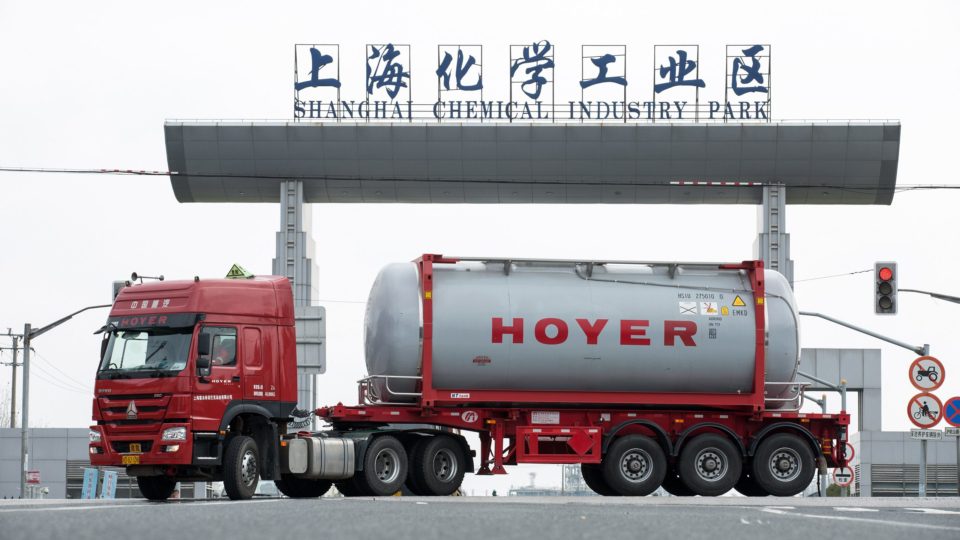The international logistics specialist sets itself clear aims and works intensively on measures to achieve greater ecological sustainability. Moreover, it does this on a global basis, wherever the company operates.
In China, Hoyer is collaborating in preparing the AICM Sustainability Report for 2021. Logistics experts from its own ranks are supporting the Chinese chemical industry’s ecological objectives.
Sustainability is obviously a major topic worldwide, including China. The People’s Republic has set itself ambitious carbon reduction goals and carbon neutrality. As elsewhere, the chemical industry and its partners play a key role in the Chinese economy and achieving the targets that have been set. The members of the ‘Association of International Chemical Manufacturers’ (AICM) are committed to this challenge and, following a 2019 report, have now presented the second AICM 2021 Sustainable Development Report without the government having given any commission.
Founded in 1988, the AICM, as the representative of the leading international chemical companies in China, wants to promote the sustainable growth of the Chinese chemical industry and Responsible Care as well as other internationally recognised principles of chemicals management among all stakeholders, eg, central and local government, the media, industrial authorities and representatives of chemical parks.
The report was presented at the China Chemical Industry and Chemical Park Forum in early June in the context of an active exchange of information and best practice among members. In the report, the AICM states practical measures for the chemical industry in order to support China’s aim to achieve carbon neutrality. They include adapting energy infrastructure, improving energy efficiency, reducing the intensity of resource and energy consumption, and effective control of the overall consumption of fossil energy.
Hoyer’s worldwide commitment to sustainable action in all steps of the logistics process is also evident in China, where the transport of bulk goods, liquid foodstuffs and liquefied gases, and associated services such as packing, storage and distribution management, together with the leasing of equipment and technical services, are offered alongside the intermodal transport of chemicals.
The company has pursued concrete sustainability objectives for decades, and also demonstrates them transparently in the Sustainability Report published annually. Ricky Zhou, Hoyer’s managing director, China domestics, explains: “The fact that we are the only logistics company participating in the preparation of the AICM 2021 Sustainable Development Report illustrates the value of Hoyer, its commitment and in particular its contribution to the country’s carbon neutrality.” To achieve its own sustainability objective, Hoyer is investing in a modern truck fleet, using engines fuelled by LNG and CNG, and in particular concentrating on less emission-intensive intermodal means of transport. This allowed Hoyer to reduce its worldwide transport emissions to below 20g of CO₂ per tonne-km in 2020.
Mark Binns, head of group SHEQ and sustainable management, illustrates that: “Hoyer has not only an interest but also an obligation to play its part in shaping a sustainable future.”
Mark Binns continues: “Our global sustainability management is made clear by the alignment of the entire company to the United Nations’ ‘Sustainable Development Goals’, eight aims of which we have defined as guidelines for our own target settings.”
In addition to climate action and economic growth, these aims also include ‘no poverty’, quality education and an obligation to responsible consumption – and these apply to the activities of Hoyer Group worldwide.
To achieve its self-imposed aims, China must make ambitious long-term efforts to transform its economy, industrial structure and energy ecosystems. AICM members and Hoyer say they are willing to play a positive, supporting role in this target-setting.
Today, the AICM represents nearly 70 large multi-national companies in China’s chemical industry. The members of the AICM include five companies that are among the top ten firms worldwide, and 28 of the world’s 50 largest chemical companies. Their business areas comprise the manufacture, sale, transport, marketing and disposal of chemicals.

